WESTERN VISAYAS, August 18, 2023 – As part of the Food Production and Livelihood (FPL) component of the program, the Department of Agriculture – Special Area for Agricultural Development (DA-SAAD) Program Phase 2 successively conducted Vegetable Production Training to five (5) farmers associations (FAs) with 150 members in Aklan, Iloilo, and Guimaras in Western Visayas.
The training is designed to improve farmers’ capacity in managing and sustaining their vegetable project and at the same time increase supply of fresh and nutritious vegetables in their communities.
The participants are from the 5th class municipalities of Tangalan in Aklan, Bingawan in Iloilo, and San Lorenzo in Guimaras.
Imparting Good Agricultural Practices (GAP) in vegetable production, the activity aims to ensure safe and quality produce while minimizing the negative impact on the environment and on the workers’ health.
Vegetable crop and its essentials
Vegetables are considered the major and most affordable source of minerals, fibers, vitamins, and in some cases, of proteins. Cultivating vegetables in one’s own backyard could provide a start-up livelihood for smallholder farmers and since vegetables can grow in any climatic conditions and type of soil and requires minimum water and cultural management, it is a go-to alternative source of income for farmers. Aside from it being a manageable venture, and providing nutritional benefits among consumers, vegetable harvests from the project are for home consumption.
The Beneficiary Needs Assessment (BNA) report stated that vegetable farming is the third leading activity for most members. In the lowland cropping system, farmers usually plant two to three crops like eggplant, okra, squash, tomato, string beans, and ampalaya after rice as a hedge for low price. They also practice crop rotation depending on anticipated commodity prices, as some expanded farming for consumption to enterprise. While members are experienced high-value crops (HVC) farmers, they still opted to receive refresher training to ensure proper project management.
Aklan Cluster
Sixty (60) members from Dumatad Farmers Association and Tagas Multipurpose Cooperative (MPC) took part in the one-day specialized training in Aklan held at Dumatad Barangay Hall with actual demonstrations held on-site.
Mr. Ian S. Calibara, Agriculturist II of the Field Office Division (FOD) of the DA Western Visayas discussed vegetable pest and disease prevention and control, and management skills needed in the daily operations of the project.
He shared, “Ang pag-implementar sang mga programa nga makalikaw sang kontaminasyon kag paghatag sang nagakaigo nga training nahanungod sa food safety awareness amo ang mga paagi agud masiguro nga may masaligan kita nga food safety program.”
(Implementing various preventive contamination programs and food safety awareness training for farmers are key signatures of a credible food safety program.)
The Dumatad Farmers Association and Tagas MPC received 30 bags of fertilizer each from various farm tools and materials and assorted vegetable seeds which are components under the Lowland Vegetable Production Project.
After receiving inputs coupled with training in the first semester, the Dumatad FA and Tagas MPC with 9400 sqm average communal area have started land preparation, strategizing and targeting to cultivate crops in communal areas where members can take turns in farm work.
Iloilo and Guimaras Cluster
In the municipality of Bingawan, 30 members of Sitio Maganhop Farmers Association participated in the training.
Each of the 30 recipients received 8 packs of assorted seeds for individual backyard gardening (consolidated 1.5 hectare), while the rest of the packs will be planted in their 0.5ha communal area.
On July 18, the same set of training was attended by 60 farmers from Napuong Small Farmers Association and Tamborong Farmers Association in San Lorenzo, Guimaras. The series of specialized training is one of the many strategies of the program to equip its beneficiaries with on-farm and post-production strategies, processes and methods.
By conducting training sessions in local production sites, it offers immediate, hands-on experience and fosters team-building with activity resources tailored to their needs. With extension initiatives brought closer to the areas, farmers can participate without leaving their village.
Following these activities, the program will continue the delivery of the remaining assistance under the same project package which is expected to be accomplished within the third quarter. ###
Writer: Cedie C. Bataga, DA-SAAD Region 6 Information Officer

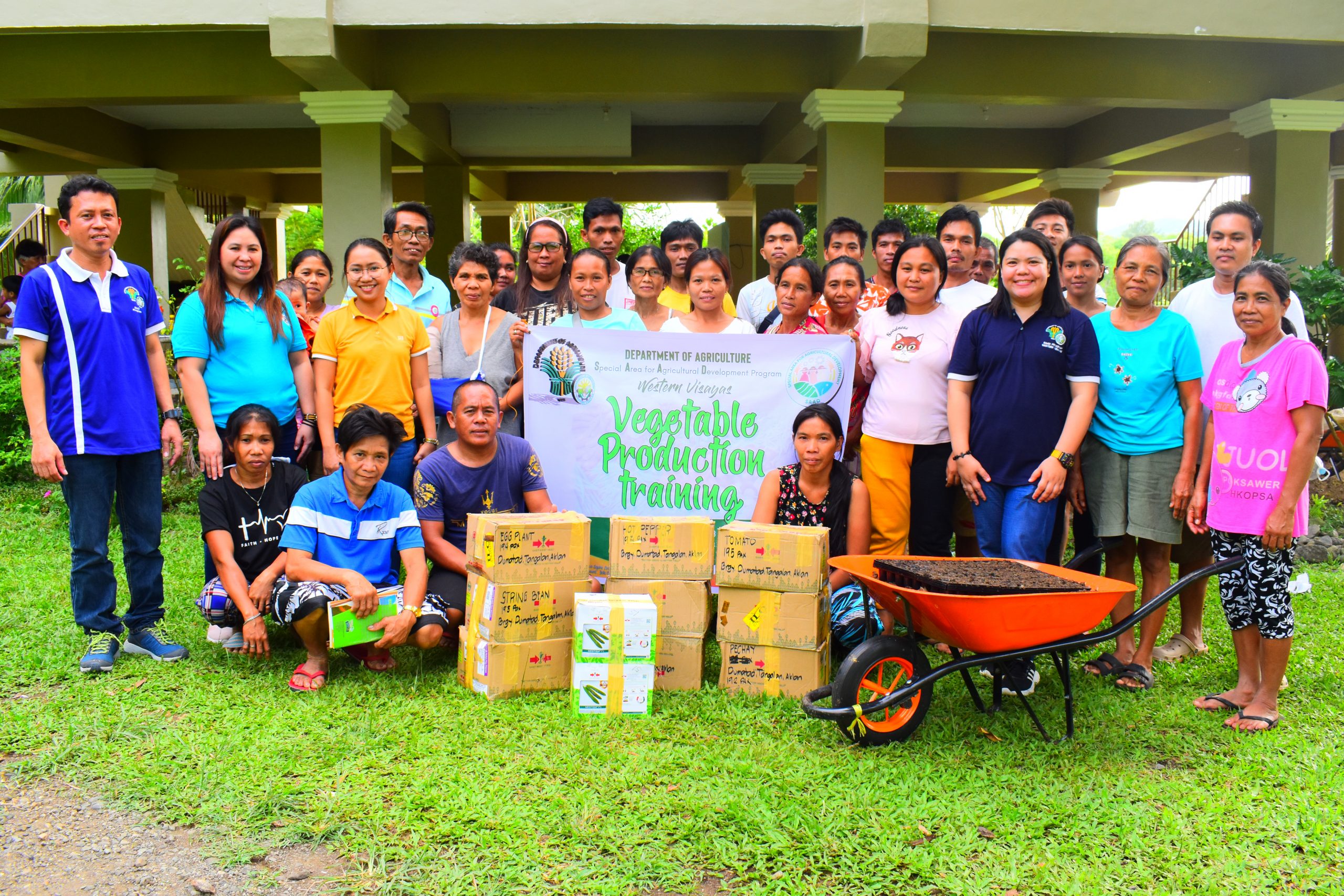
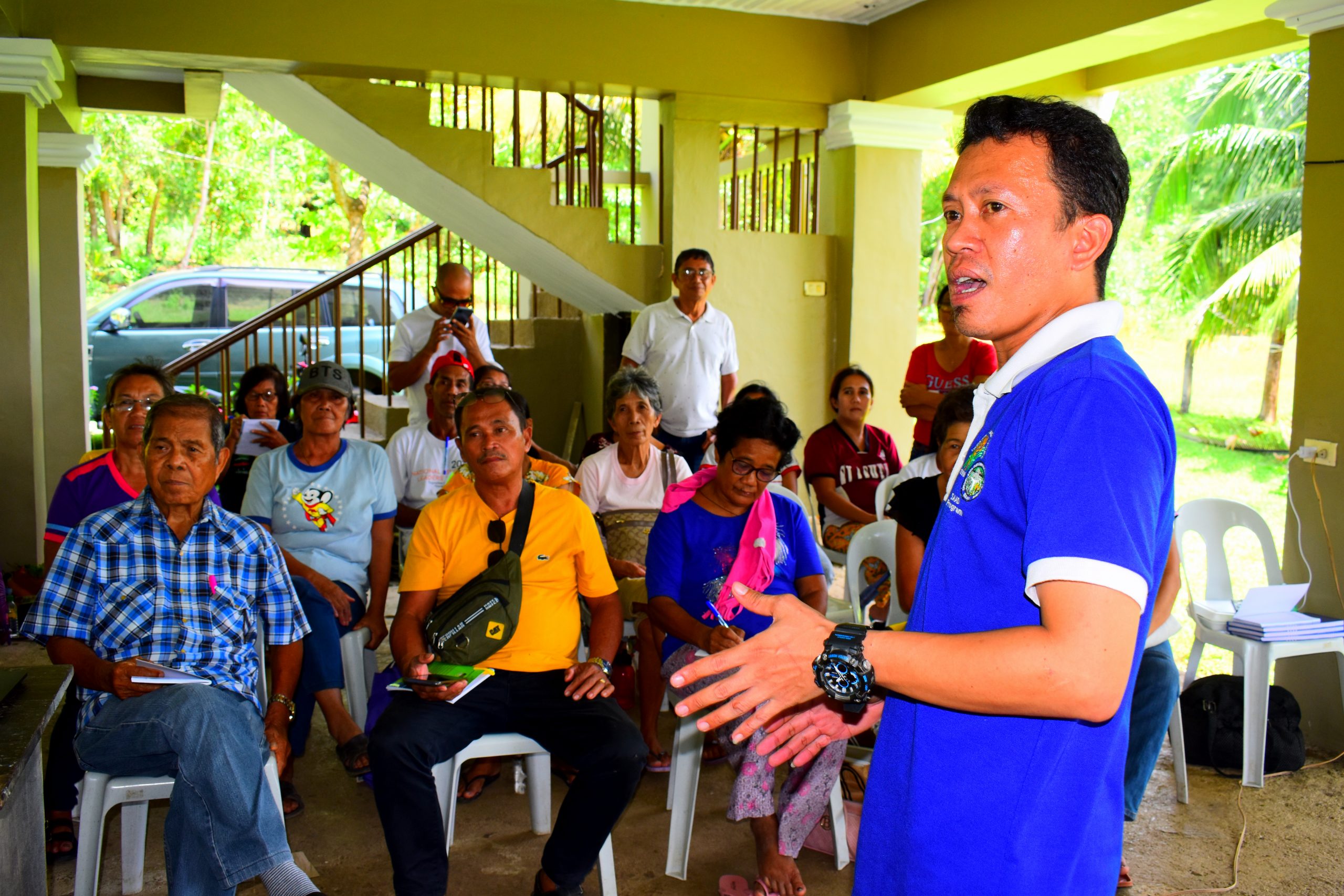
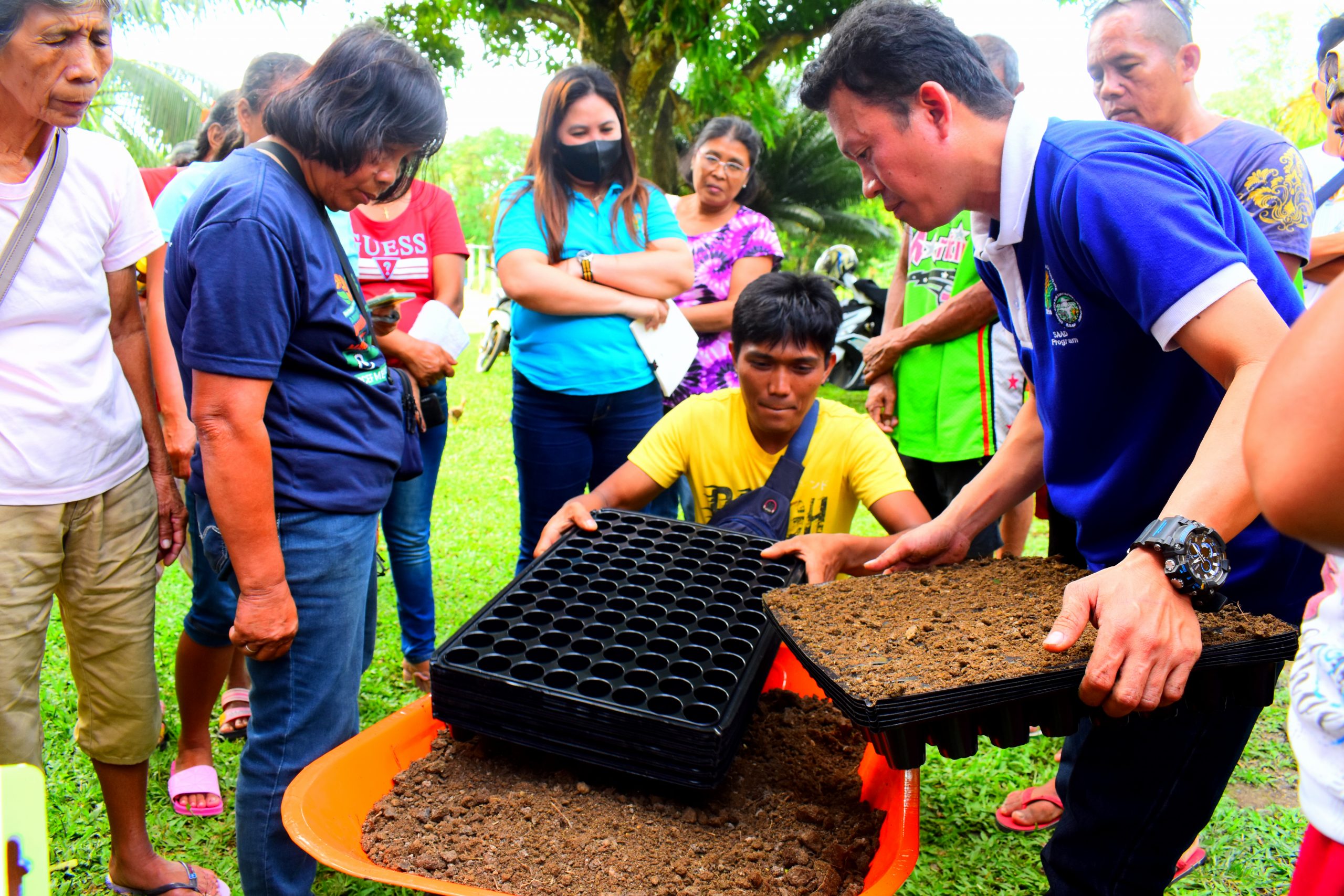
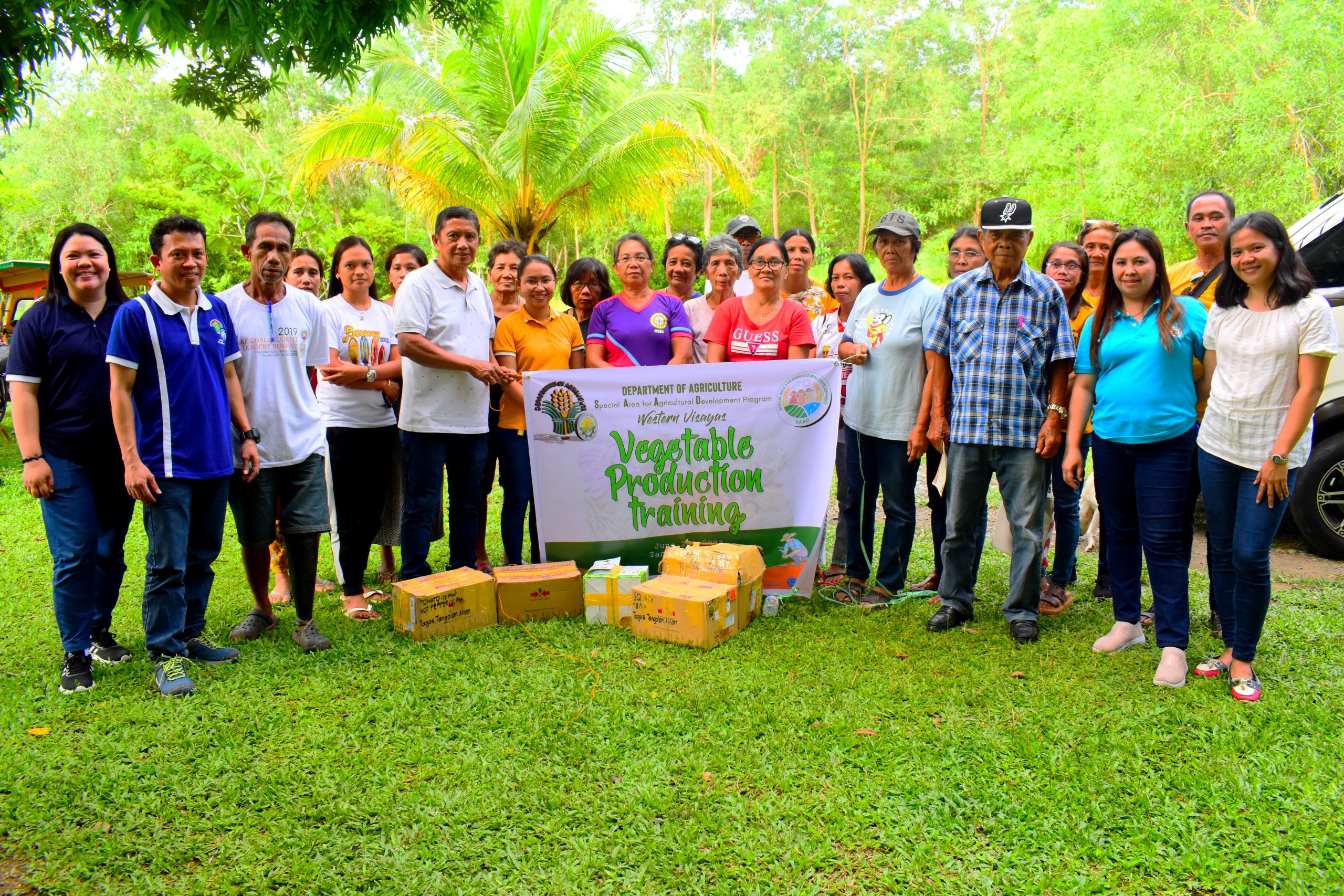
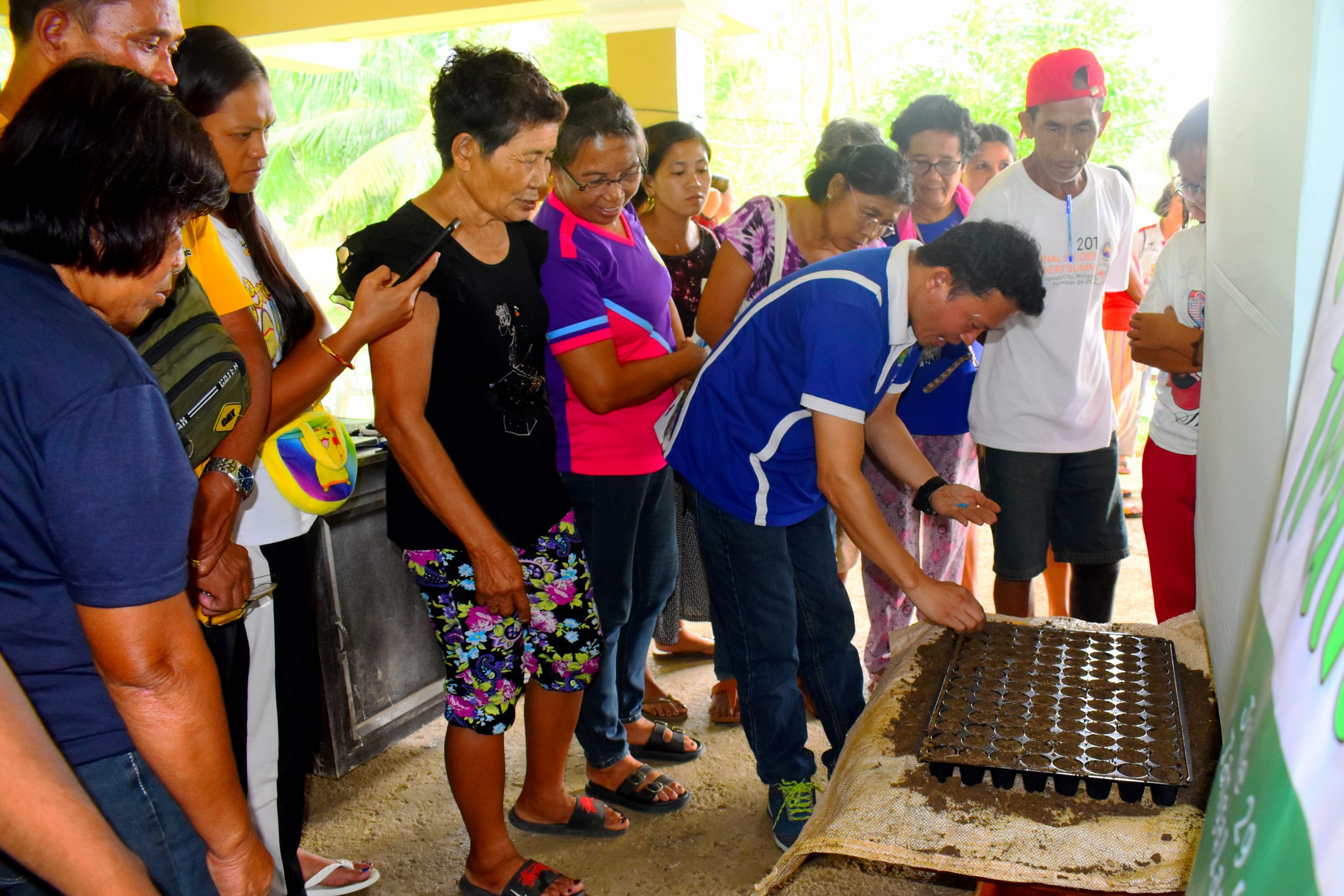
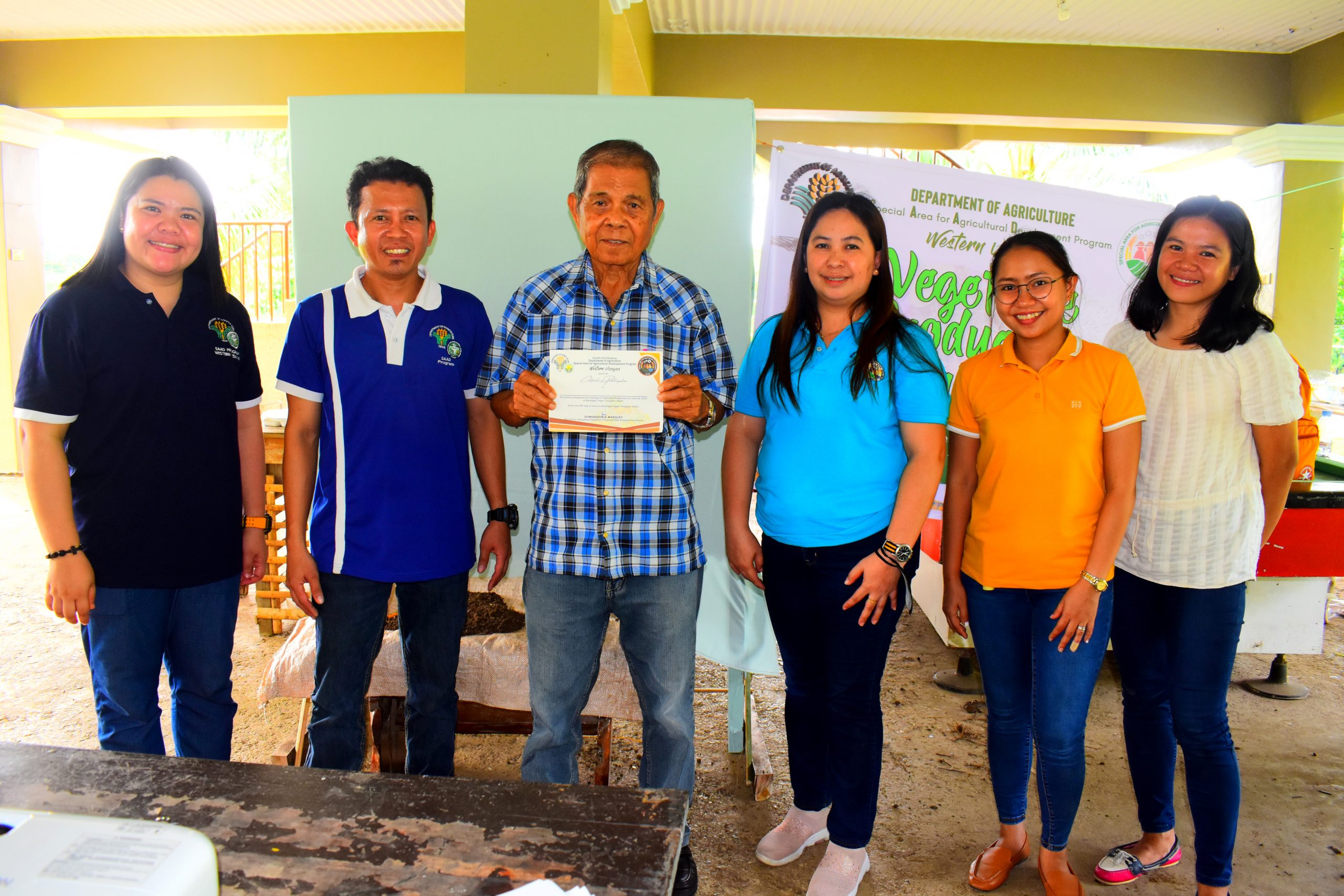


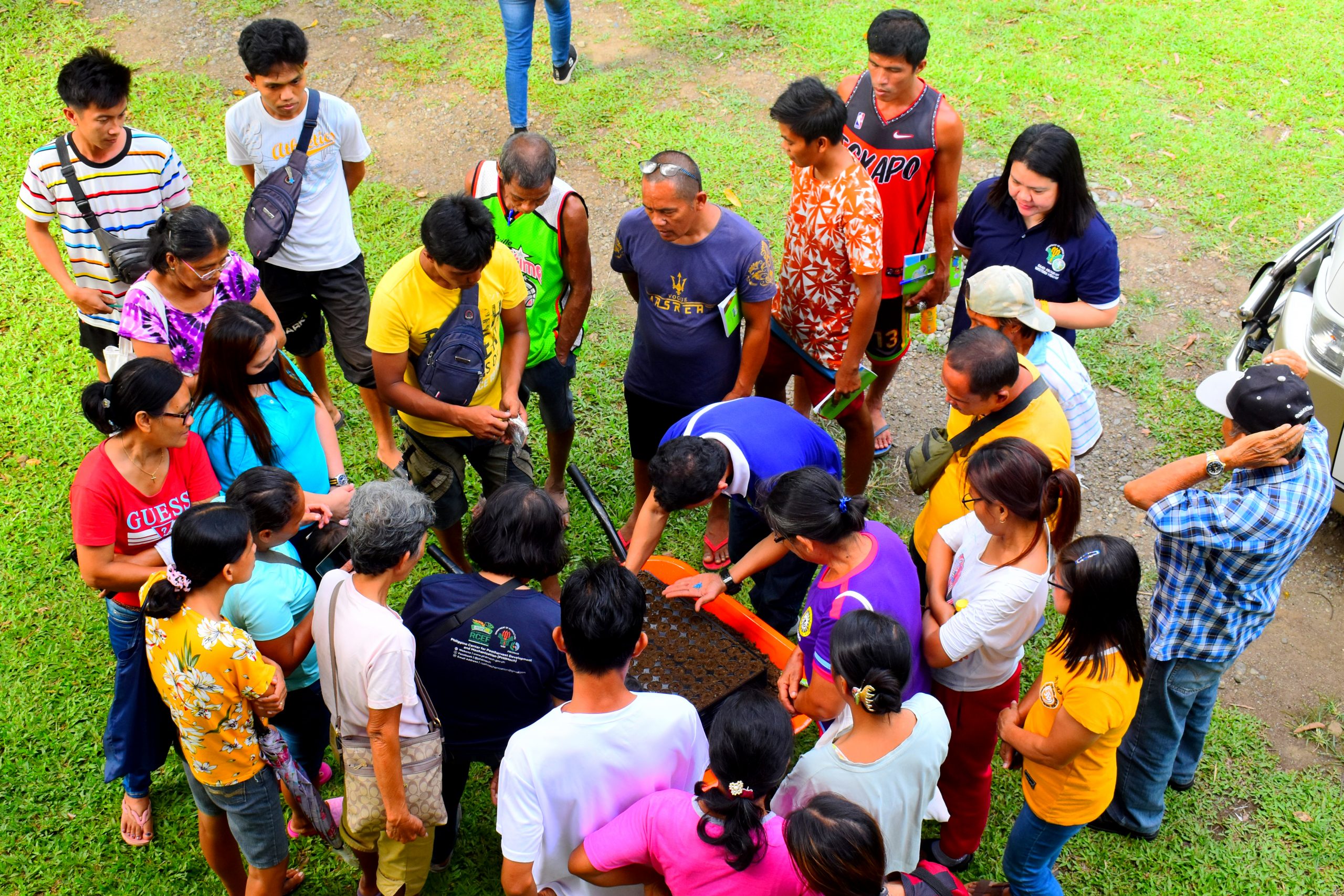
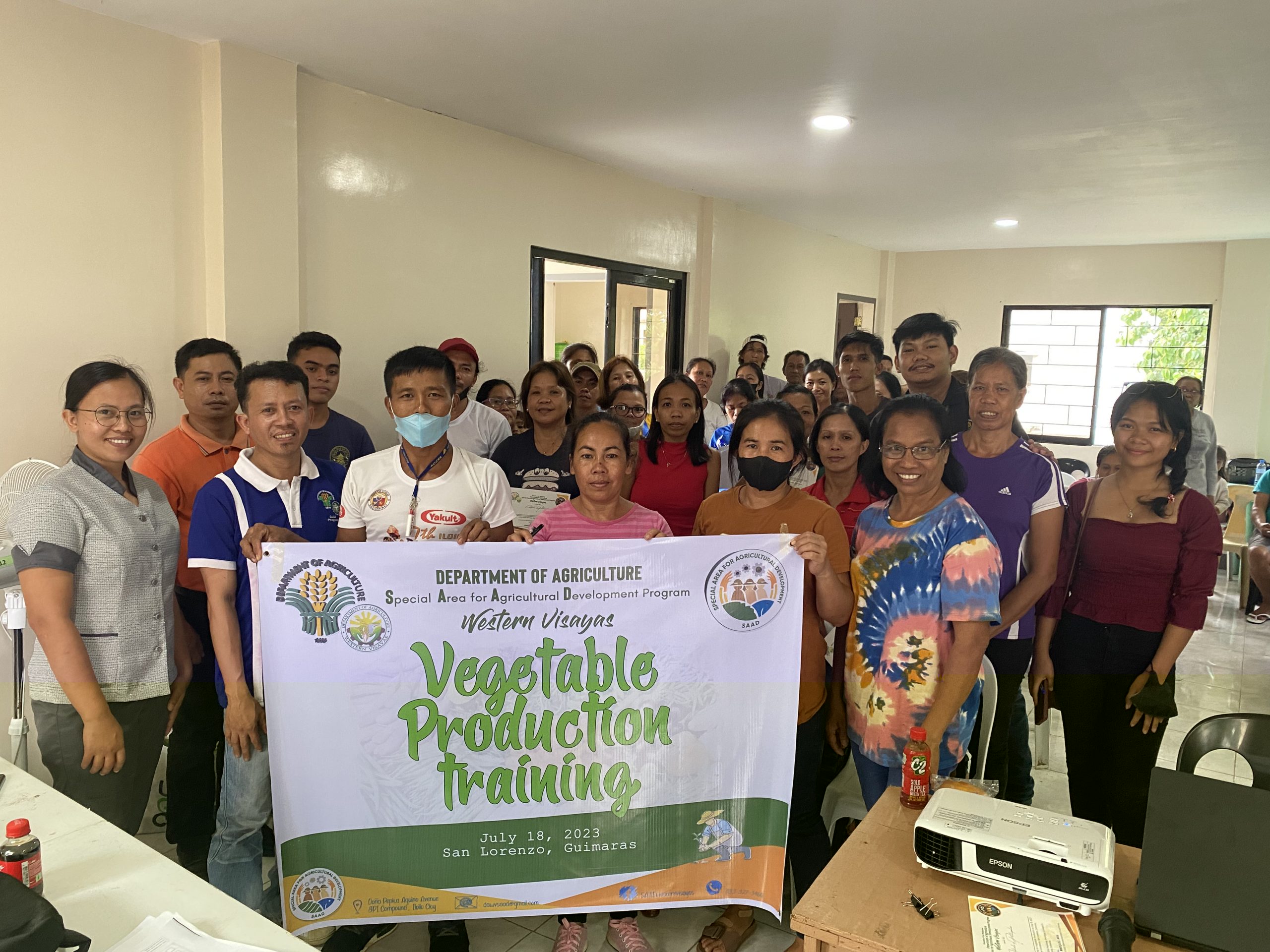
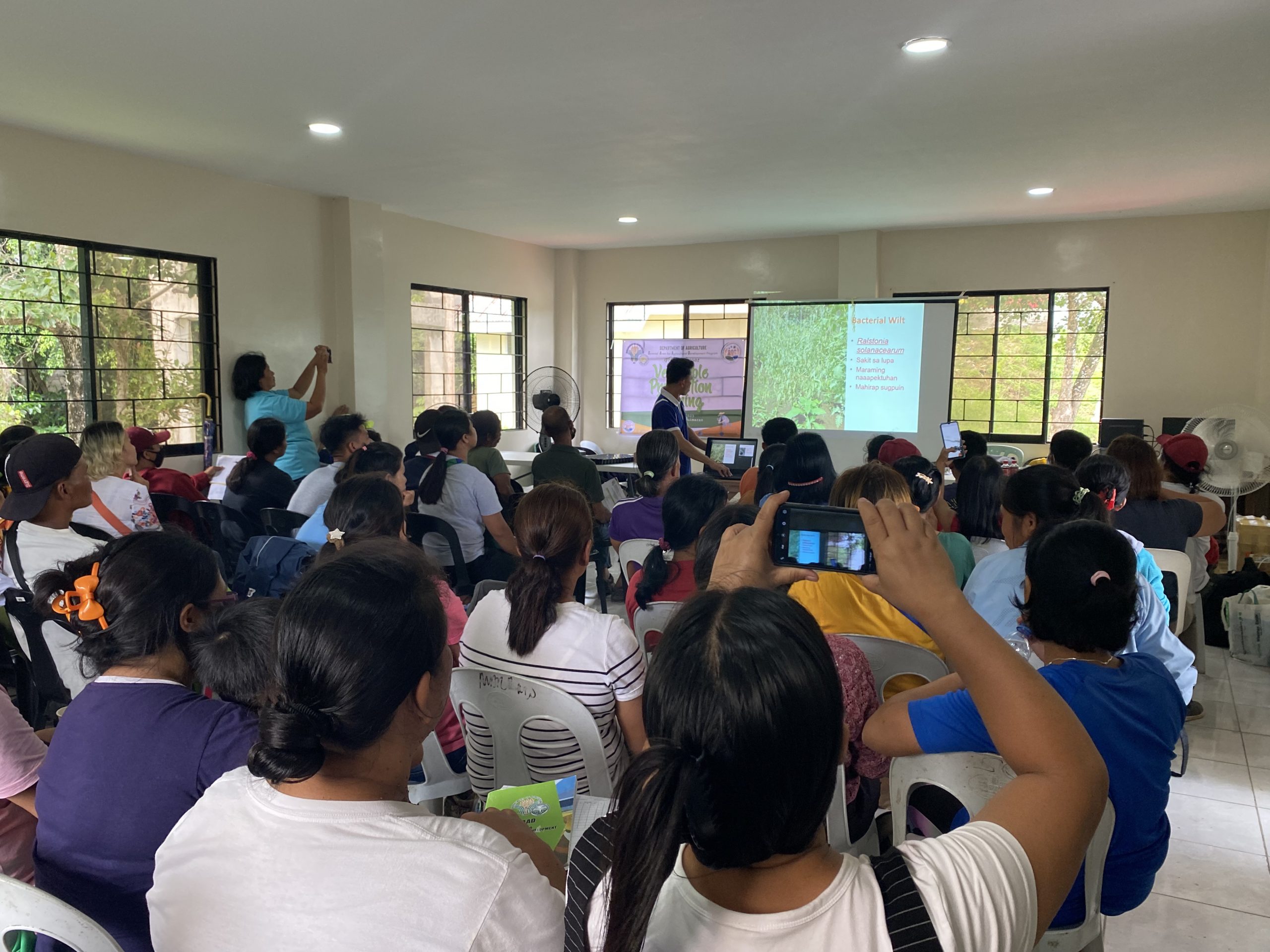
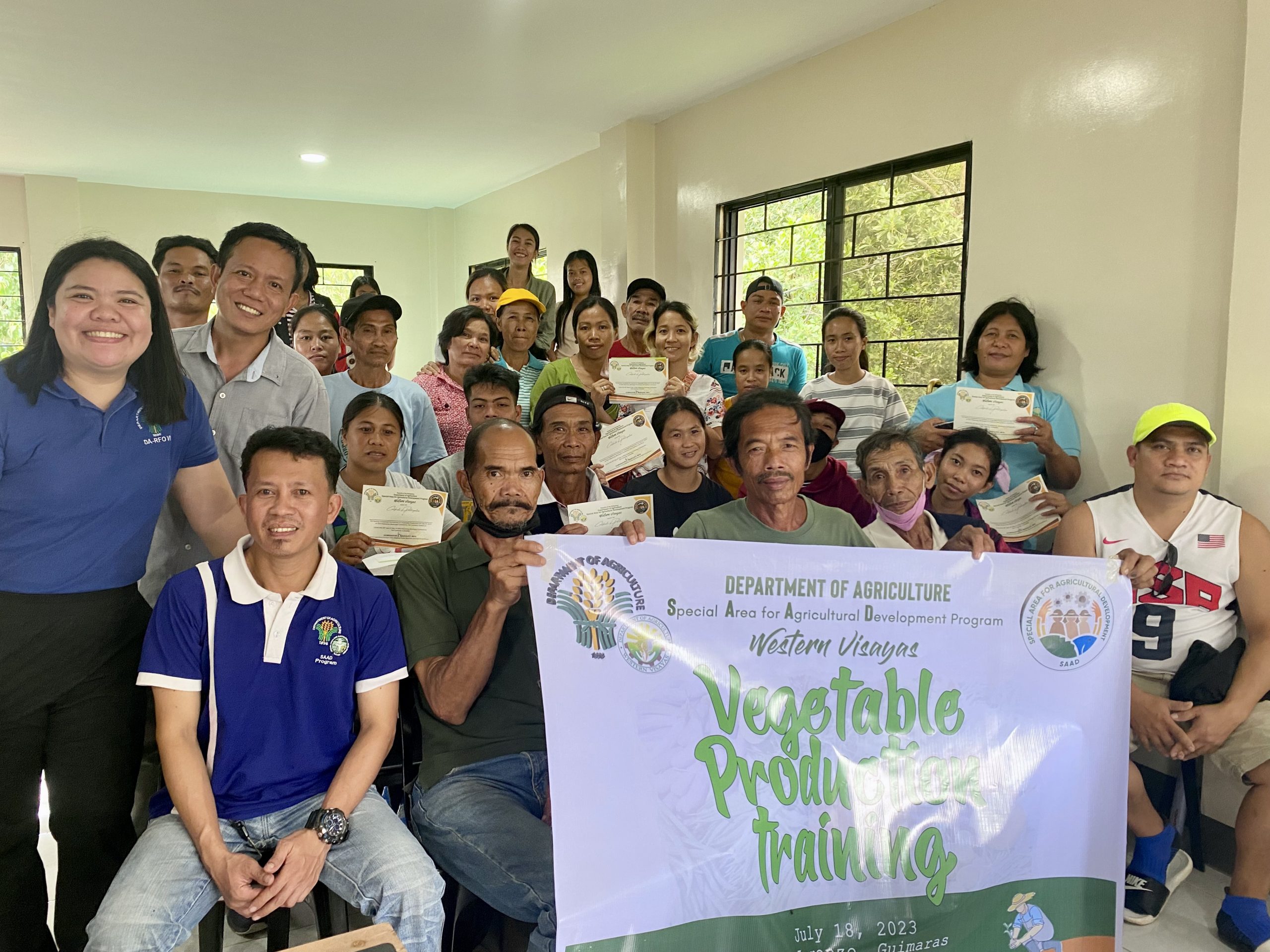
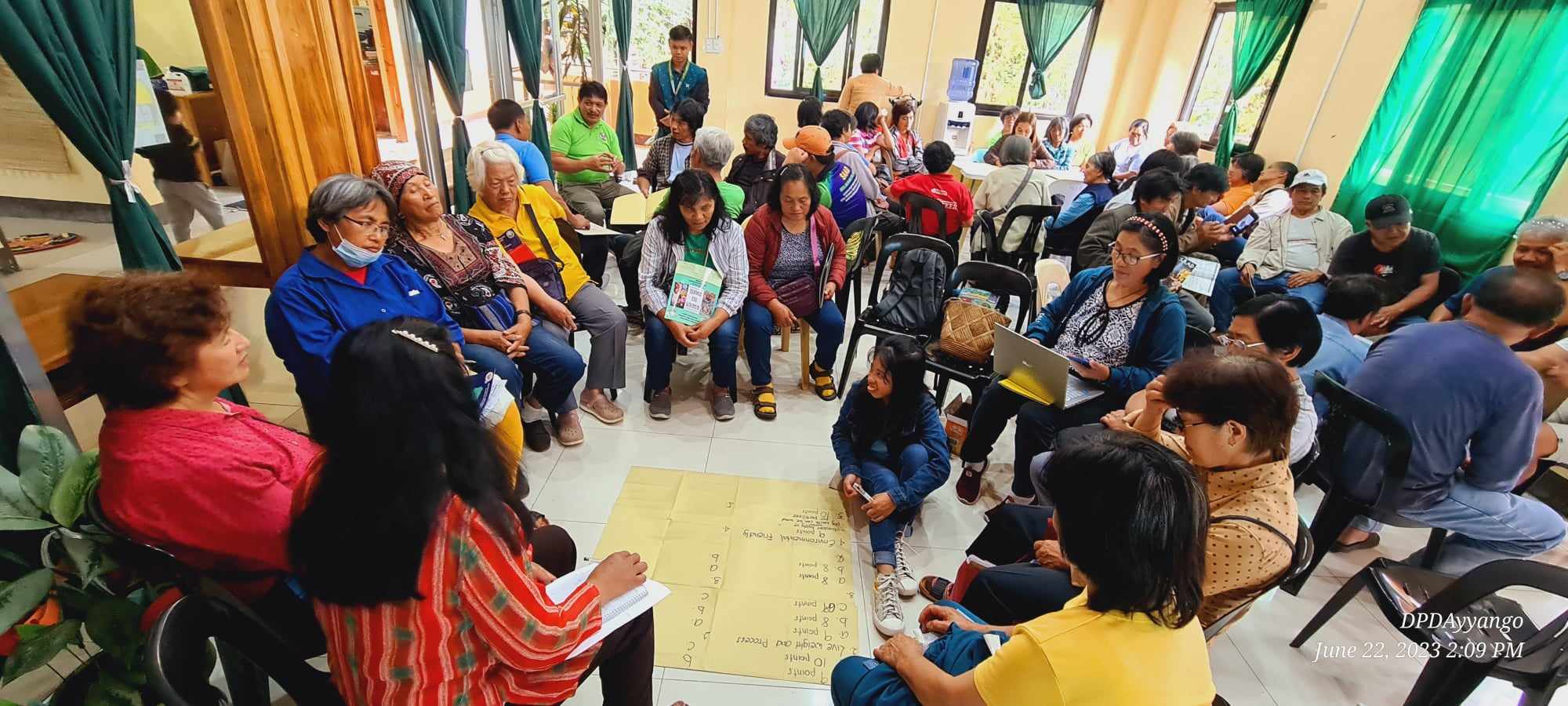
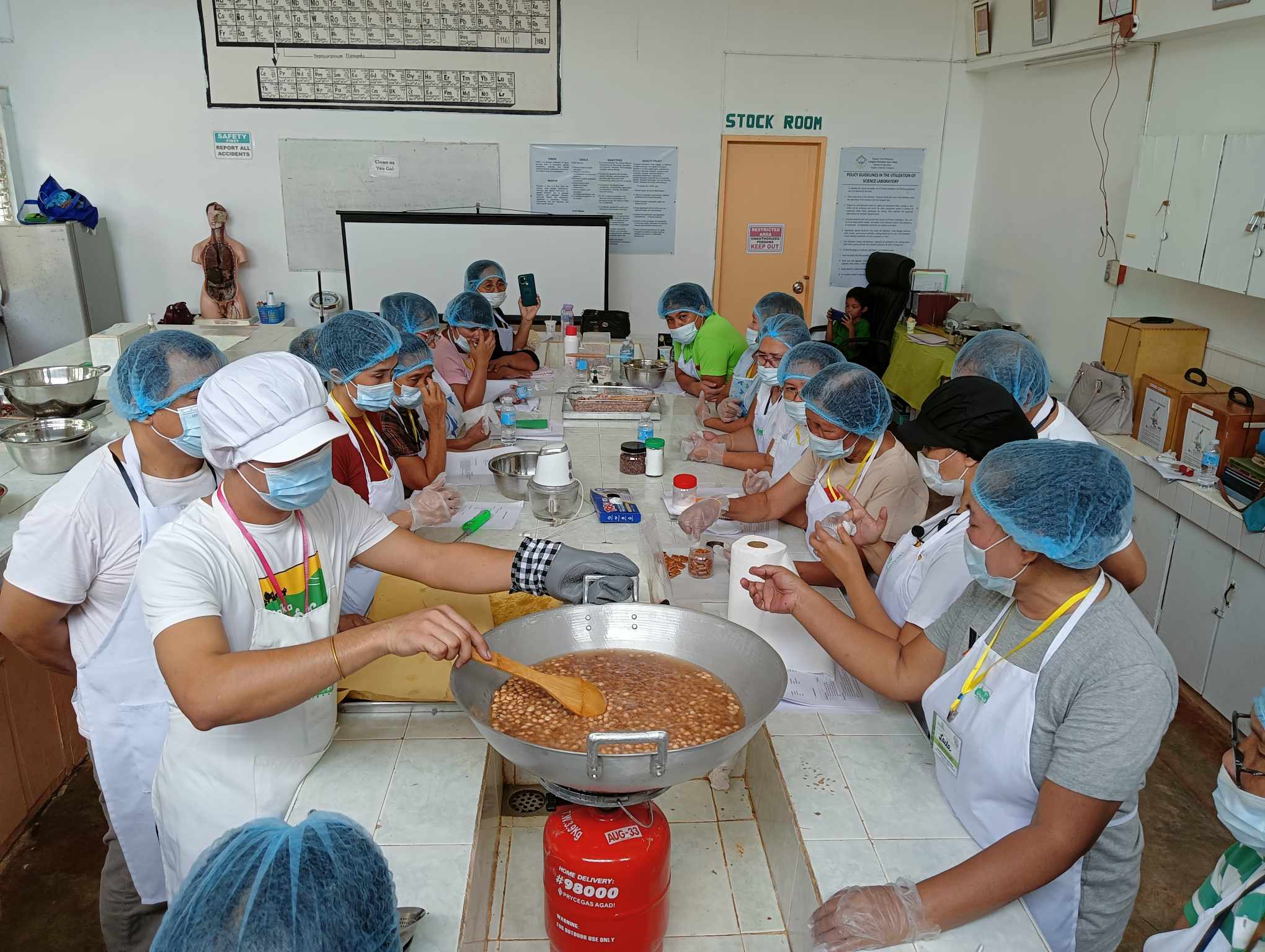
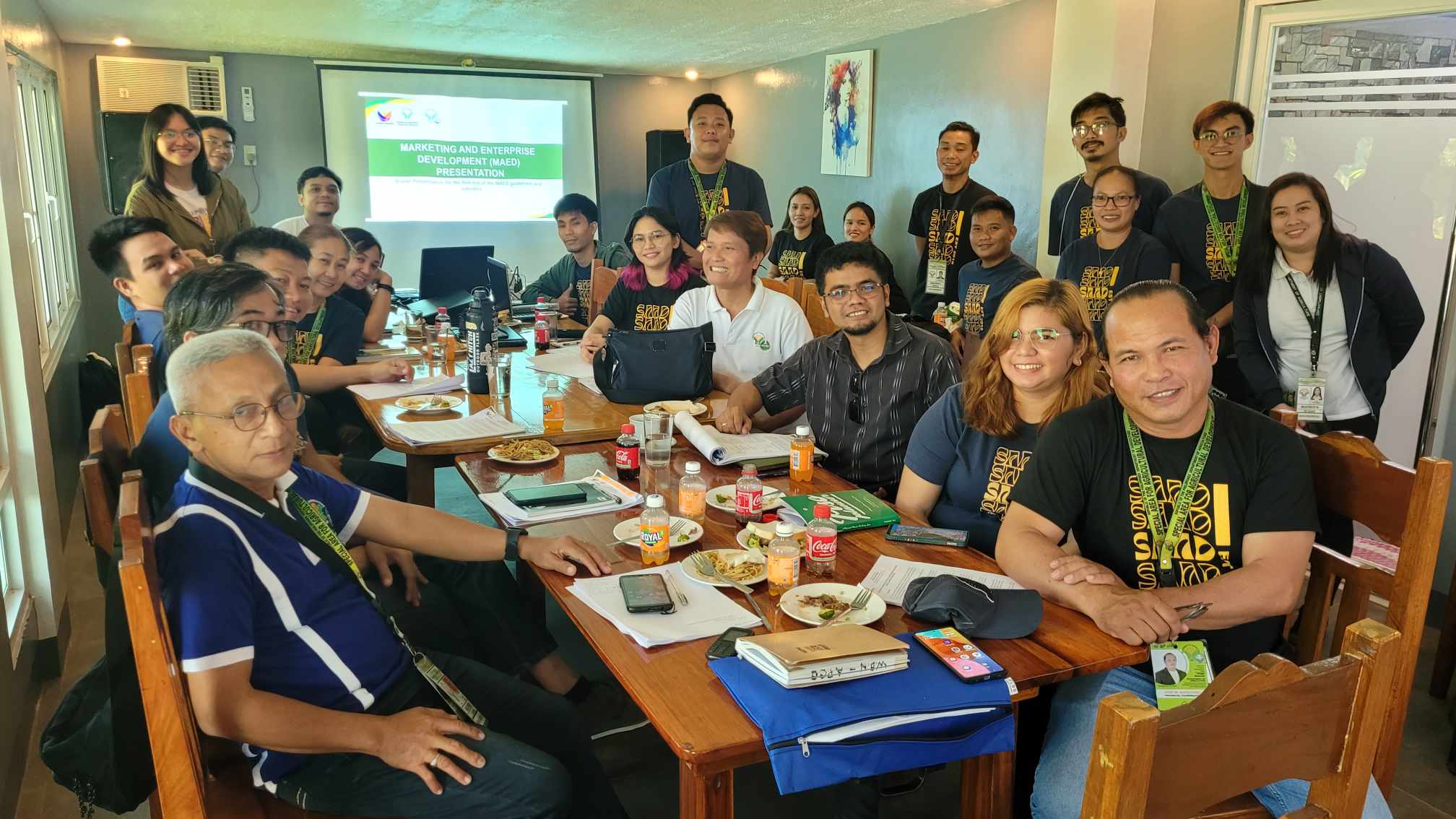
This Post Has 0 Comments